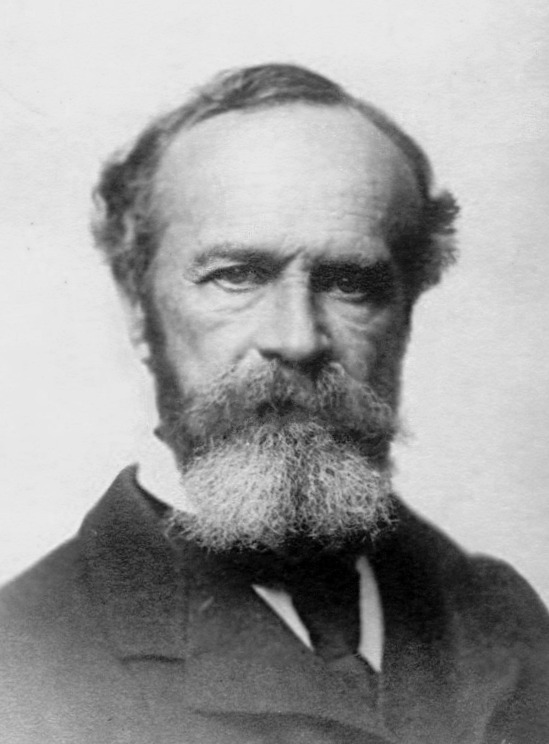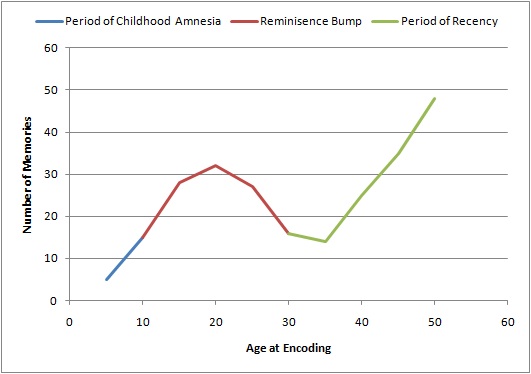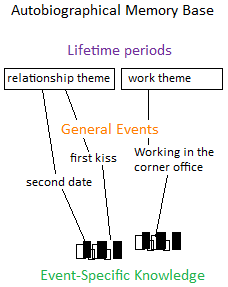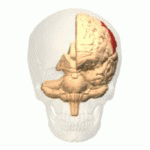|
Remember Versus Know Judgements
There is evidence suggesting that different processes are involved in remembering something versus knowing whether it is familiar.Mickley, K.R., Kensinger, E.A. (2008). Emotional valence influences the neural correlates associated with remembering and knowing. ''Cognition, affective & behavioural neuroscience, 8(2),'' 143-152. It appears that "remembering" and "knowing" represent relatively different characteristics of memory as well as reflect different ways of using memory. To remember is the conscious ''recollection'' of many vivid contextual details, such as "when" and "how" the information was learned. Remembering utilizes episodic memory and requires a deeper level of processing (e.g. undivided attention) than knowing. Errors in recollection may be due to source-monitoring errors that prevent an individual from remembering where exactly a piece of information was received. On the other hand, source monitoring may be very effective in aiding the retrieval of episodic memories. ... [...More Info...] [...Related Items...] OR: [Wikipedia] [Google] [Baidu] |
Episodic Memory
Episodic memory is the memory of everyday events (such as times, location geography, associated emotions, and other contextual information) that can be explicitly stated or conjured. It is the collection of past personal experiences that occurred at particular times and places; for example, the party on one's 7th birthday. Along with semantic memory, it comprises the category of explicit memory, one of the two major divisions of long-term memory (the other being implicit memory). The term "episodic memory" was coined by Endel Tulving in 1972, referring to the distinction between knowing and remembering: ''knowing'' is factual recollection (semantic) whereas ''remembering'' is a feeling that is located in the past (episodic). One of the main components of episodic memory is the process of recollection, which elicits the retrieval of contextual information pertaining to a specific event or experience that has occurred. Tulving seminally defined three key properties of episodic memo ... [...More Info...] [...Related Items...] OR: [Wikipedia] [Google] [Baidu] |
Cingulate Gyrus
The cingulate cortex is a part of the brain situated in the medial aspect of the cerebral cortex. The cingulate cortex includes the entire cingulate gyrus, which lies immediately above the corpus callosum, and the continuation of this in the cingulate sulcus. The cingulate cortex is usually considered part of the limbic lobe. It receives inputs from the thalamus and the neocortex, and projects to the entorhinal cortex via the cingulum. It is an integral part of the limbic system, which is involved with emotion formation and processing, learning, and memory. The combination of these three functions makes the cingulate gyrus highly influential in linking motivational outcomes to behavior (e.g. a certain action induced a positive emotional response, which results in learning). This role makes the cingulate cortex highly important in disorders such as depression and schizophrenia. It also plays a role in executive function and respiratory control. Etymology The term ''cingul ... [...More Info...] [...Related Items...] OR: [Wikipedia] [Google] [Baidu] |
Knowledge
Knowledge can be defined as awareness of facts or as practical skills, and may also refer to familiarity with objects or situations. Knowledge of facts, also called propositional knowledge, is often defined as true belief that is distinct from opinion or guesswork by virtue of justification. While there is wide agreement among philosophers that propositional knowledge is a form of true belief, many controversies in philosophy focus on justification: whether it is needed at all, how to understand it, and whether something else besides it is needed. These controversies intensified due to a series of thought experiments by Edmund Gettier and have provoked various alternative definitions. Some of them deny that justification is necessary and replace it, for example, with reliability or the manifestation of cognitive virtues. Others contend that justification is needed but formulate additional requirements, for example, that no defeaters of the belief are present or that the ... [...More Info...] [...Related Items...] OR: [Wikipedia] [Google] [Baidu] |
Hindsight Bias
Hindsight bias, also known as the knew-it-all-along phenomenon or creeping determinism, is the common tendency for people to perceive past events as having been more predictable than they actually were. People often believe that after an event has occurred, they would have predicted or perhaps even would have known with a high degree of certainty what the outcome of the event would have been before the event occurred. Hindsight bias may cause distortions of memories of what was known or believed before an event occurred, and is a significant source of overconfidence regarding an individual's ability to predict the outcomes of future events. Examples of hindsight bias can be seen in the writings of historians describing outcomes of battles, physicians recalling clinical trials, and in judicial systems as individuals attribute responsibility on the basis of the supposed predictability of accidents. History The hindsight bias, although it was not yet named, was not a new concept w ... [...More Info...] [...Related Items...] OR: [Wikipedia] [Google] [Baidu] |
Tip-of-the-tongue
Tip of the tongue (also known as ''lethologica'') is the phenomenon of failing to retrieve a word or term from memory, combined with partial recall and the feeling that retrieval is imminent. The phenomenon's name comes from the saying, "It's on the tip of my tongue." The tip of the tongue phenomenon reveals that lexical access occurs in stages. People experiencing the tip-of-the-tongue phenomenon can often recall one or more of the target word, such as the first letter, its syllabic stress, and words similar in sound, meaning, or both sound and meaning. Individuals report a feeling of being seized by the state, feeling something like mild anguish while searching for the word, and a sense of relief when the word is found. While many aspects of the tip-of-the-tongue state remain unclear, there are two major competing explanations for its occurrence: the ''direct-access view'' and the ''inferential view''. Emotion and the strength of the emotional ties to what is trying to be re ... [...More Info...] [...Related Items...] OR: [Wikipedia] [Google] [Baidu] |
Reminiscence Bump
The reminiscence bump is the tendency for older adults (over forty) to have increased or enhanced recollection for events that occurred during their adolescence and early adulthood. It was identified through the study of autobiographical memory and the subsequent plotting of the age of encoding of memory, memories to form the lifespan retrieval curve. The ''lifespan retrieval curve'' is a graph that represents the number of autobiographical memories encoded at various ages during the life span. The lifespan retrieval curve contains three different parts. From birth to five years old is a period of childhood amnesia, from 16 to 25 years old is the reminiscence bump and last is a period of forgetting from the end of the reminiscence bump to present time. The reminiscence bump has been observed on the lifespan retrieval curve in multiple studies. Theorists have proposed several explanations, ranging from changes in brain biology to the type of events that typically occur during this ... [...More Info...] [...Related Items...] OR: [Wikipedia] [Google] [Baidu] |
Autobiographical Memory
Autobiographical memory is a memory system consisting of episodes recollected from an individual's life, based on a combination of episodic (personal experiences and specific objects, people and events experienced at particular time and place) and semantic (general knowledge and facts about the world) memory.Williams, H. L., Conway, M. A., & Cohen, G. (2008). Autobiographical memory. In G. Cohen & M. A. Conway (Eds.), Memory in the Real World (3rd ed., pp. 21-90). Hove, UK: Psychology Press. It is thus a type of explicit memory. Formation Conway and Pleydell-Pearce (2000) proposed that autobiographical memory is constructed within a self-memory system (SMS), a conceptual model composed of an autobiographical knowledge base and the working self. Autobiographical knowledge base The autobiographical knowledge base contains knowledge of the self, used to provide information on what the self is, what the self was, and what the self can be. This information is categorized into three b ... [...More Info...] [...Related Items...] OR: [Wikipedia] [Google] [Baidu] |
Epilepsy
Epilepsy is a group of non-communicable neurological disorders characterized by recurrent epileptic seizures. Epileptic seizures can vary from brief and nearly undetectable periods to long periods of vigorous shaking due to abnormal electrical activity in the brain. These episodes can result in physical injuries, either directly such as broken bones or through causing accidents. In epilepsy, seizures tend to recur and may have no immediate underlying cause. Isolated seizures that are provoked by a specific cause such as poisoning are not deemed to represent epilepsy. People with epilepsy may be treated differently in various areas of the world and experience varying degrees of social stigma due to the alarming nature of their symptoms. The underlying mechanism of epileptic seizures is excessive and abnormal neuronal activity in the cortex of the brain which can be observed in the electroencephalogram (EEG) of an individual. The reason this occurs in most cases of epilepsy is u ... [...More Info...] [...Related Items...] OR: [Wikipedia] [Google] [Baidu] |
Schizophrenia
Schizophrenia is a mental disorder characterized by continuous or relapsing episodes of psychosis. Major symptoms include hallucinations (typically hearing voices), delusions, and disorganized thinking. Other symptoms include social withdrawal, decreased emotional expression, and apathy. Symptoms typically develop gradually, begin during young adulthood, and in many cases never become resolved. There is no objective diagnostic test; diagnosis is based on observed behavior, a history that includes the person's reported experiences, and reports of others familiar with the person. To be diagnosed with schizophrenia, symptoms and functional impairment need to be present for six months (DSM-5) or one month (ICD-11). Many people with schizophrenia have other mental disorders, especially substance use disorders, depressive disorders, anxiety disorders, and obsessive–compulsive disorder. About 0.3% to 0.7% of people are diagnosed with schizophrenia during their lifetime. In 2 ... [...More Info...] [...Related Items...] OR: [Wikipedia] [Google] [Baidu] |
Recollection
Recall in memory refers to the mental process of retrieval of information from the past. Along with encoding and storage, it is one of the three core processes of memory. There are three main types of recall: free recall, cued recall and serial recall. Psychologists test these forms of recall as a way to study the memory processes of humansrecall. (2010). In Encyclopædia Britannica. Retrieved March 04, 2010, from Encyclopædia Britannica Online: http://www.britannica.com/EBchecked/topic/493353/recal/ref> and animals. Two main theories of the process of recall are the two-stage theory and the theory of Encoding specificity principle, encoding specificity. Theories Two-stage theory The ''two-stage theory'' states that the process of recall begins with a search and retrieval process, and then a decision or recognition process where the correct information is chosen from what has been retrieved. In this theory, recognition only involves the latter of these two stages, or processes, ... [...More Info...] [...Related Items...] OR: [Wikipedia] [Google] [Baidu] |
Parietal Lobe
The parietal lobe is one of the four major lobes of the cerebral cortex in the brain of mammals. The parietal lobe is positioned above the temporal lobe and behind the frontal lobe and central sulcus. The parietal lobe integrates sensory information among various modalities, including spatial sense and navigation (proprioception), the main sensory receptive area for the sense of touch in the somatosensory cortex which is just posterior to the central sulcus in the postcentral gyrus, and the dorsal stream of the visual system. The major sensory inputs from the skin (touch, temperature, and pain receptors), relay through the thalamus to the parietal lobe. Several areas of the parietal lobe are important in language processing. The somatosensory cortex can be illustrated as a distorted figure – the cortical homunculus (Latin: "little man") in which the body parts are rendered according to how much of the somatosensory cortex is devoted to them. The superior parietal lobule and in ... [...More Info...] [...Related Items...] OR: [Wikipedia] [Google] [Baidu] |
Source-monitoring Error
A source-monitoring error is a type of memory error where the source of a memory is incorrectly attributed to some specific recollected experience. For example, individuals may learn about a current event from a friend, but later report having learned about it on the local news, thus reflecting an incorrect source attribution. This error occurs when normal perceptual and reflective processes are disrupted, either by limited encoding of source information or by disruption to the judgment processes used in source-monitoring. Depression, high stress levels and damage to relevant brain areas are examples of factors that can cause such disruption and hence source-monitoring errors.Johnson, M.K., Hashtroudi, S., Lindsay, D.S. (1993). Source Monitoring. ''Psychological Bulletin'', 114(1), 3–28 Introduction One of the key ideas behind source-monitoring is that rather than receiving an actual label for a memory during processing, a person's memory records are activated and evaluated throu ... [...More Info...] [...Related Items...] OR: [Wikipedia] [Google] [Baidu] |


_(cropped).jpg)






